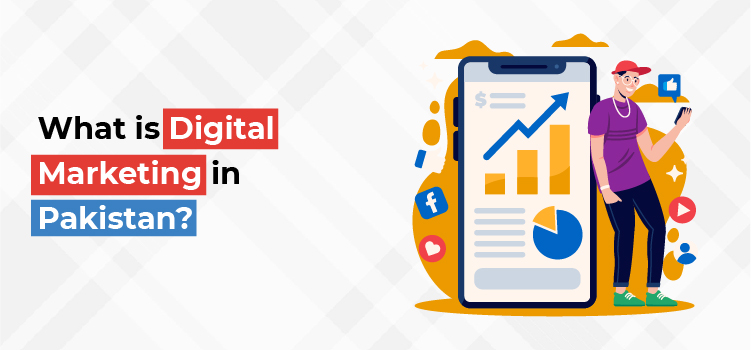Companies have always had to compete for customers, but now they have to do that differently. In the past, companies could rely on their customers’ endorsements and traditional advertising methods like billboards and print ads to get their products noticed. But today, the playing field has changed dramatically, thanks to social media.
Companies are posting more than they used to.
Today’s companies have a variety of online platforms to use for their marketing, including blogs and social media accounts. They’re no longer just using their websites as the only place to interact with customers and prospects. Companies now have multiple channels to reach out to potential clients. Many businesses are using a combination of several different channels at once.
With so much content being shared on these different platforms, it can be hard for customers to track what each brand has recently posted. This makes it even more important for these companies to create consistent content across all their channels. So buyers know what kinds of things they should expect from each brand every time they visit one of its pages or accounts online.
Companies are using social media to make the customer experience better.
Customer service is a priority for many companies, and many are turning to social media to interact with their customers. Some businesses use social media to gather customer feedback. While others use it to resolve customer issues or complaints. Social media has also given rise to new models of customer service. For example, companies may have an entire team dedicated solely to responding on Facebook and Twitter instead of having only one person handle comments and complaints across all platforms at once.
Customers use social media to gain information about products and services.
Many people have turned to social media to obtain information about products and services. It is an excellent way for companies to market their products and allows them to answer customer questions and provide support. Social media helps build trust between businesses and customers. Because users can quickly go back and see if there are any complaints or issues with previous purchases. This allows companies to respond quickly to keep their clients happy. This way, they improve the overall experience for both parties involved.
Also read: Social Media Marketing Exposure for Complete Business Exposure
Customers use social media for support.
Social media is a great way for customers to ask questions. They can informally do this by using online forums or official channels such as Twitter or Facebook. Social media provides access to customer service at its best.
Companies like PNC Bank and USAA have been known for having great social media customer service teams active on all fronts. That includes Facebook, Instagram, and Twitter. These companies use this communication channel to help resolve issues quickly and efficiently.
Social media has even been used as a part of employee training. Back in 2011, when Burger King sent out tweets with typos in them instead of deleting them immediately after realizing their mistake. It turned into an opportunity for humor among followers who started copying what they saw from other users who were tweeting about it with the hashtag #notatburgerking
Social media data is playing an increasingly large role in marketing efforts.
More businesses are turning to social data to understand customer behavior. This can be done in many ways. Because social media has become increasingly important in marketing efforts,
- Social listening
Listening is a great way to keep tabs on what people think about your brand and its products. You can use the data collected from listening to guide how you market your products or services. You can also use it to know how customers feel about certain topics related to your business (like price). If there’s one thing that customers hate, it’s bad service! Consider this when deciding whether or not you should raise prices for your product or service.
- Social monitoring
Monitoring allows businesses to see if any new conversations are being started about their company or product (good or bad). When this happens, businesses can respond accordingly by posting comments on those topics via their social channels like Facebook Page Posts and tweets using Twitter Cards. So, they reach wider audiences who may not have seen the original post.
- Social Targeting
In addition to these uses of social data in marketing efforts, businesses also take advantage of analytics platforms. For example, tools from Google Analytics. They can help them track things like website traffic coming from specific sources. The source can be Facebook Ads campaigns across different devices (desktop computers vs. mobile phones) by region (state/county/city) based on demographics like location type (urban vs. suburban vs. rural).
Also read: 8 Benefits of Social Media Marketing That Help Your Brand Have a Robust Image
Facebook advertising has become an increasingly important part of marketing strategies.
Social media has become an increasingly important part of business marketing strategies. Facebook, in particular, is the most popular social network and offers many advantages to businesses looking to reach new customers.
As of 2019, Facebook has more than 2 billion monthly active users (MAU). These users are also highly engaged: In Q2 2018 alone, people spent 50 minutes per day on Facebook—more than two hours per week! With this kind of reach and engagement, it’s no surprise that social media advertising has become essential to many companies’ marketing strategies.
About half of the marketers use or plan to use social media advertising in their campaigns this year. It is expected to rise steadily as more advertisers adopt this strategy. Facebook allows you to target specific audiences based on gender, age group, or behavior. You can even diversify your targeting by geography or language if desired. The platform also boasts affordable pricing options that make it easy for small businesses with limited budgets to get started with ads.
Finally—and perhaps most importantly—Facebook’s automated ad manager automates much of the process. So that you don’t need a large team working full-time on copywriting and design. Instead, you can focus on getting results from your advertising efforts while still staying informed about how they’re performing on an ongoing basis.
Also read: Social Media Marketing Strategies – All you Need to Know
Companies are using video content more than ever before.
Video content is more engaging, shareable, and likely to be seen than other types of content. With the rise of social media, businesses can leverage this trend by working with their customers on a much more personal level. Video allows you to speak directly to your target audience and fill them in on all the details they need without spending all day typing out every little thing.
It’s important that you start using video as soon as possible because otherwise, your competitors will get ahead of you in no time!
Consumers expect to engage with companies on social media.
Social media has made connecting with customers and talking to businesses easier. Because of this, it’s more important than ever that companies have a strong customer service presence on social media. Customers want to see that you are responsive and care about their concerns. It makes social media a great way to discover their thoughts and how your business can improve.
Social media is used as a news source by companies and consumers.
Companies use social media to share news about their products and services, both positive and negative. This can help them stay engaged with existing customers but also help them reach new ones. For example, if a company’s product has received an award or other accolade, they can easily post this on their social media channels for all to see.
Likewise, suppose changes in the company’s leadership team or other important updates have been made over time (such as relocating the headquarters). In that case, these are also good reasons for sharing them online so that everyone knows what’s happening within your organization.
Consumers use social media platforms like Twitter and Facebook to find out what others think about specific products/services. So they know if something would be worth spending money on before purchasing it themselves.”
Users expect their information to be private.
You might think users would be more cautious about sharing information online, but the opposite has proven true. Many people are willing to give up their privacy to reap some reward or benefit. This is the reason behind all those offers for “free” things. From Facebook and Twitter apps to Instagram likes and Pinterest repins on pins. Or even a special offer on something you’re interested in buying at Amazon or Walmart. While these offers may seem appealing at first glance, consumers should know what they’re giving away in exchange for whatever freebies they receive.
Companies must ensure that their customers understand exactly how their data will be used before they agree to share it. Suppose a company needs to be more explicit about its policies regarding customer data collection and retention practices. In that case, there’s no way for users to make an informed decision about whether they want their information shared with other parties (like advertisers).
Social media impacts businesses in many different ways.
Social media has changed the way businesses interact with their customers. New methods have replaced older business interaction and customer service models. Some of them are very different from traditional forms of customer engagement.
Businesses are posting more than ever to serve their customers better. They’re also using social media to ensure the experience is good for both parties involved.
Customers use social media to gain information about products and services, which helps them make better-informed decisions about what they buy or use in their daily lives.
Conclusion
We know social media impacts your business, and we’re here to help. We have an extensive library of content about how companies can use social media for marketing, customer support, and more. With our expertise in this area, we can provide valuable insights into how your organization should engage with customers on platforms like Facebook and Twitter.




